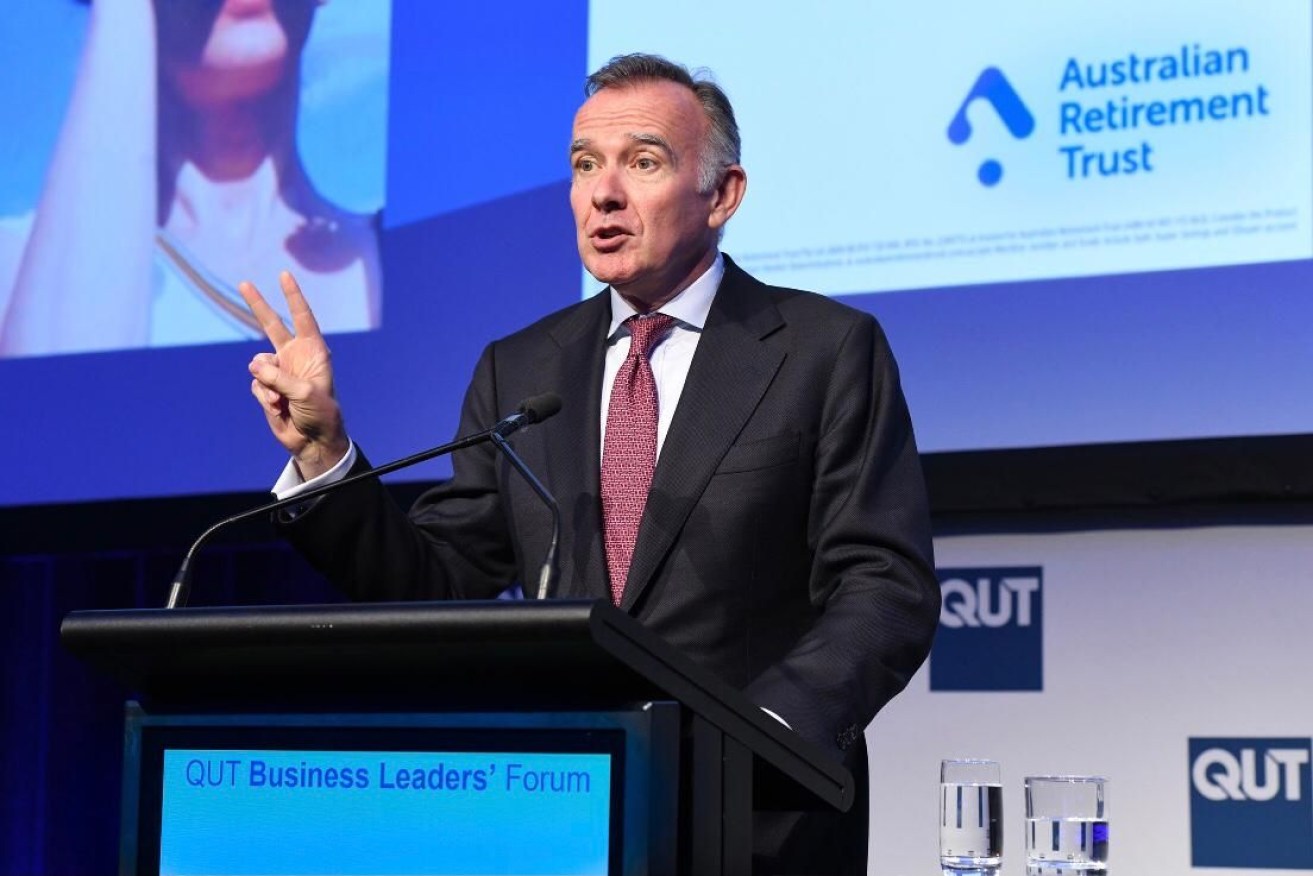Superannuation should be about retirement, not wealth, says ART boss
The boss of the $200 billion Australian Retirement Trust has backed a cap on the amount people can hold in their superannuation accounts.


ART chief executive Bernard Reilly
Chief executive of the nation’s second biggest super fund Bernard Reilly told a QUT business leaders forum Australia needed to define the purpose of superannuation as a retirement vehicle and not as a way to amass wealth at the expense of others.
His comments came after a Federal Government retirement income review earlier this year found there were about 11,000 people with balances of $5 million in their super fund and they could achieve annual earnings tax concessions of about $70,000.
Separate research by Challenger released this week also found a quarter of people don’t touch their superannuation in retirement and instead hold on to it for possible medical expenses and because of fears they may run out of money.
There has also been a push for the Albanese Government to force the $3.4 trillion superannuation sector to direct funds into sectors like social housing.
Reilly, ART’s first chief executive since it was created from the merger of Sunsuper and QSuper, said Australia needed to define the purpose of super.
“For me, it’s about generating a pool of assets to generate retirement income for an individual,” he said.
“It’s about retirement. Otherwise, why is the government giving tax breaks to people saving for their retirement if they’re not using it for that?” he said.
He said he was aware of the discussion around a cap on how much could be held in a superannuation fund and the industry body ASFA had recommended a cap of $5 million.
“Super is not there for amassing personal wealth at the expense of others (through the use of tax breaks),” he said.
“That ($5 million) sounds like a lot of money, but I need to give it more thought.”
Only six months, ART and the rest of the super sector, has had its challenges.
On a weekend earlier this year when the merger was finalised, Brisbane was under water and ART’s Brisbane offices were shut because of flooding. Its 2500 staff were forced back into remote work.
At the same time, Russia had invaded Ukraine and markets were in turmoil.
“Team members were racing out to Bunnings to buy generators. We had team members having to hand over their work to colleagues because their house was flooding or they had to go next door to help a neighbour. Some were working from public libraries,” Reilly said.
“It was really quite extraordinary.”
But there were 374 staff working on the merger and Reilly and his team knew that on the Monday morning when businesses opened, its members had to see a fund that was up and running.
And they did.
“On the Sunday night I set my alarm for midnight to see if the logo changed over. It did.
“I don’t think we missed a beat.”
But before all that, there was what he referred to as a firestorm that came when superannuation funds were thrown headlong into dealing with the former Morrison government’s decision to allow people who had hit financial hardship during the Covid lockdowns access to up to $20,000 in two tranches from their superannuation funds.
“We had 30 days. We made 486,000 payments to 333,000 members of $3.4 billion,” he said.
“It created a firestorm for people. We added 74 people to our contact team. Virgin staff (who had been stood down) came into the contact centre.”
Reilly said the past couple of years had been very challenging. He joined Sunsuper in 2019 and five months later there was the announcement of a memorandum of understanding on a merger with QSuper.
A few months after that there was a pandemic and Reilly, who had come from State Street global advisers, said the shift to work from home had changed the way people thought about work.
“We have 2500 staff in Brisbane and we moved to work from home really quickly. Our organisation had been about it for two years and managed to do it in two weeks,” he said.
One of its benefits was that rather than being stuck in meetings, Reilly was able to meet his workforce, albeit through Microsoft Teams rather than in person.
ART also caused a stir recently when it signed on with QIC to fund a major social housing project in Brisbane.
It was the first of its type and Reilly said it was something funds should do as long as it aligned with the interests of members.
At a function this week in Brisbane, Reilly was asked about superannuation equality for women.
“The first thing to address is the pay gap,” Reilly said.
He said a report would soon be going to the board of ART on how the organisation was performing on the issue. At Sunsuper, it had been narrowing before the merger and ART is paying the superannuation guarantee on maternity leave.
ART’s soon-to-be-released annual report will also publish the salaries of its executive team so that members can see exactly how much each is paid.












